Published Mar 8, 2022
Star Trek Created Feminist Icons in Front of and Behind the Camera
We're looking at 12 of Trek's most inspiring women.
StarTrek.com | Getty Images
This article was originally published on August 26, 2019.
The women of Star Trek inspired many with their goal-driven initiative, female friendships, ability to command, and by just being women in space (which in Starfleet, it turns out, is a lot easier than NASA originally thought it might be).
Each Trek series builds off the last, becoming more and more progressive in their portrayals of women. We can see this easily, looking at the franchise through The Bechdel Test. This feminist framework grades media on three points: (1) There must be at least two (named) women characters; (2) Who talk to each other; (3) About something other than a man.
According to The Mary Sue, in The Original Series, 7.5% of episodes passed the Bechdel Test. In The Next Generation, 44.9%; Deep Space Nine, 57.8%; Voyager, 86.9%; Enterprise, 39%. While the franchise took a step backwards with Enterprise, Discovery, though not yet tested as a whole, will probably have the highest rating of all.
Star Trek’s vision of a Utopian future includes equal rights for all, the definition of feminism. While it wasn’t always completely successful, the show broke ground by constantly pushing back on harmful stereotypes and creating powerful women. Here are 12 such iconic women from the franchise, both fictional and real.
Uhura
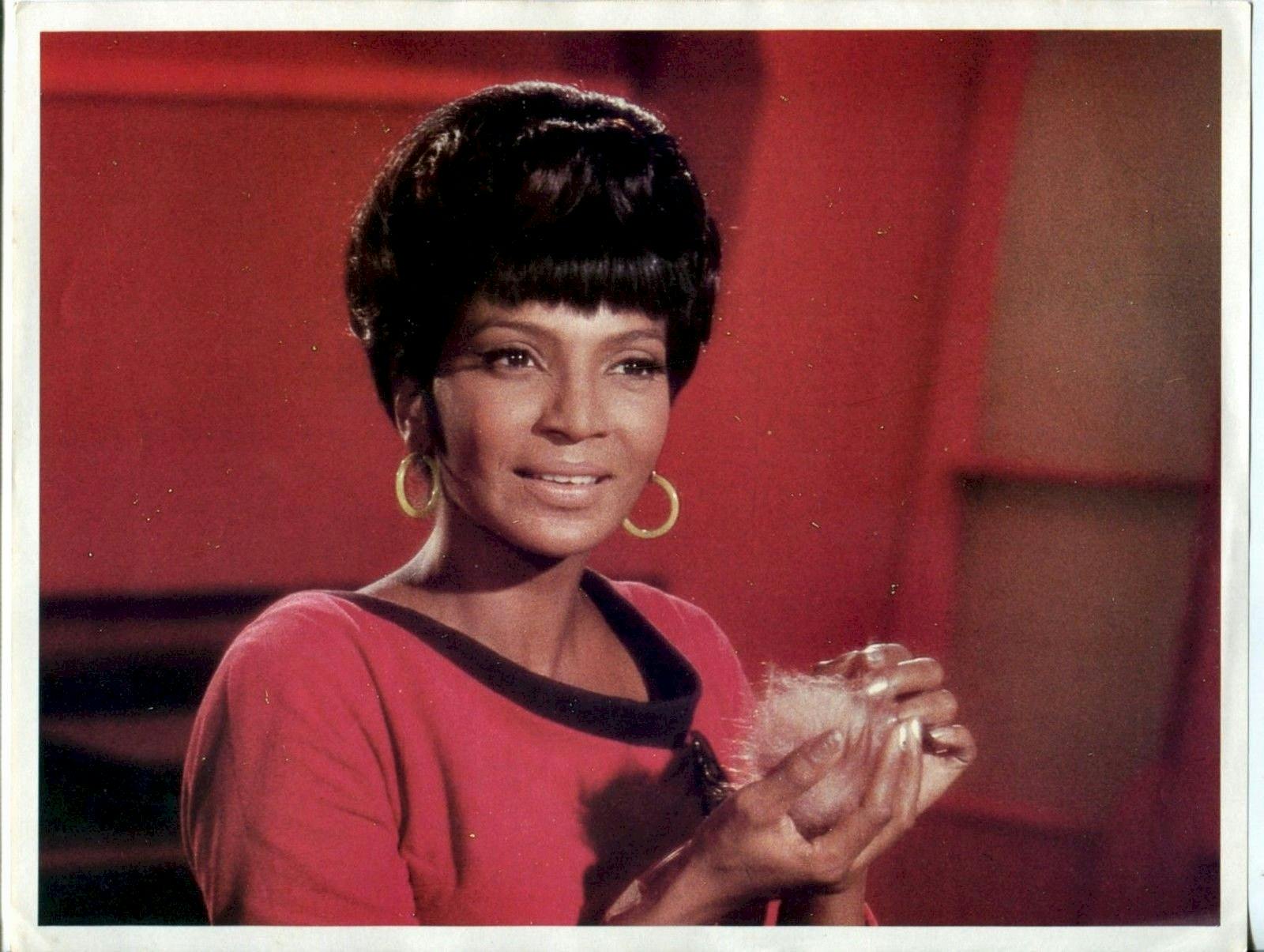
StarTrek.com
Sulu: “I’ll protect you, fair maiden!”Uhura: “Sorry, neither.”--TOS, "The Naked Time," Season 1, Episode 4
“As a little girl growing up on the south side of Chicago in the ‘60s” explains Dr. Mae Jemison, the first Black woman in space, “I always knew I was going to be in space.” Why was she so certain at such a young age? Because she saw Nichelle Nichols as Lieutenant Uhura on the Enterprise. Uhura also inspired Whoopi Goldberg to go into acting. At the time of the show, Nichols was one of the few black women on television. Moreover, she was in a role set in a future where race was irrelevant. It didn’t matter in the Star Trek universe that Uhura was a Black woman, but it mattered very much for contemporary 1960s viewers, which is why Martin Luther King Jr. encouraged Nichols to remain a cast member. “[T]his is the only show that my wife Coretta and I will allow our little children to stay up and watch,” he said to her. Uhura’s importance as a feminist icon cannot be overstated.
Deanna Troi
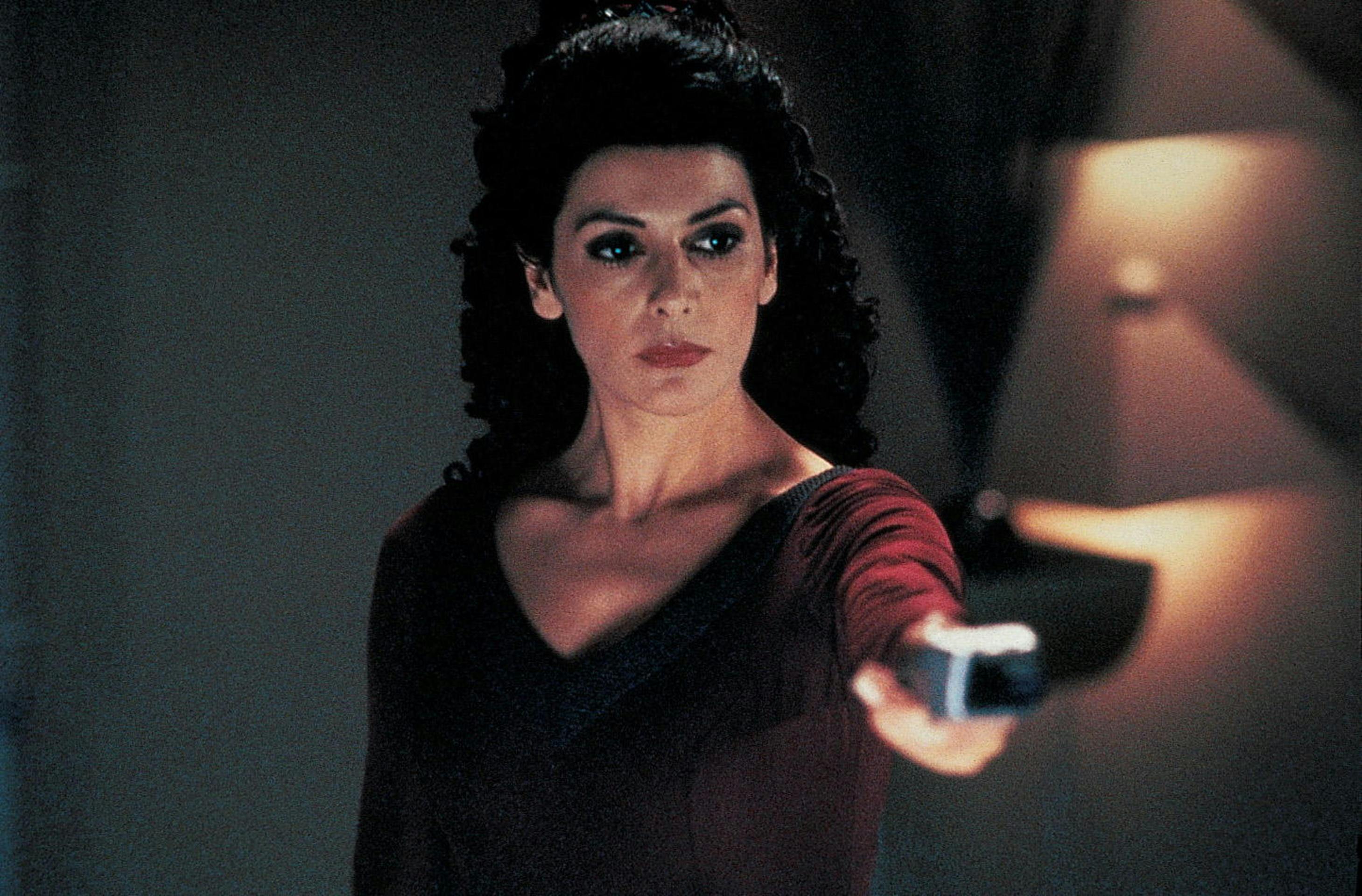
StarTrek.com
"Confidence is faith in oneself. It can't easily be given by another." --TNG, "Loud as a Whisper", Season 2, Episode 5
In Tasha Yar’s post-death hologram, she says Troi helped her realize she could “be feminine without losing anything.” I grew up watching TNG, and Counselor Troi was the one that allowed me to imagine a place for myself as a member of Starfleet. I admired her strength as a leader and as a counselor. In a panel, Marina Sirtis, the actress who played Troi, says she enjoyed playing her because she was allowed to be sexual without judgment in a time when there were few non-judged sexualized women on television. Counselor Troi showed you could be both feminine and competent.
Beverly Crusher
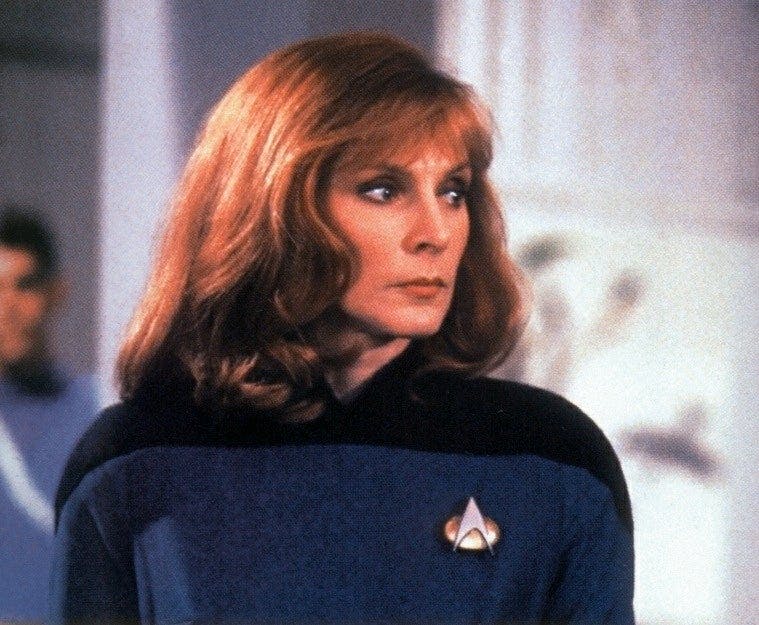
StarTrek.com
“If there is nothing wrong with me, maybe there’s something wrong with the universe.” --TNG, "Remember Me," Season 4, Episode 5
Hasn’t every woman (and marginalized group) thought this at some point? Gates McFadden, the actress who played Dr. Crusher, has discussed before some of her frustrations with portraying the character. She wanted Dr. Crusher to be more active - both she and Marina Sirtis were the only trained fencers in the cast, yet weren’t allowed to join action scenes. McFadden also wanted to see Dr. Crusher guide her son’s career and aspirations as a single mother would do, and not always leave it up to Captain Picard to talk to him. It’s frustrating to think of how much more dynamic Dr. Crusher could’ve been, while at the same time, as a single and incredibly capable working mom, she remains a truly an iconic character.
Tasha Yar
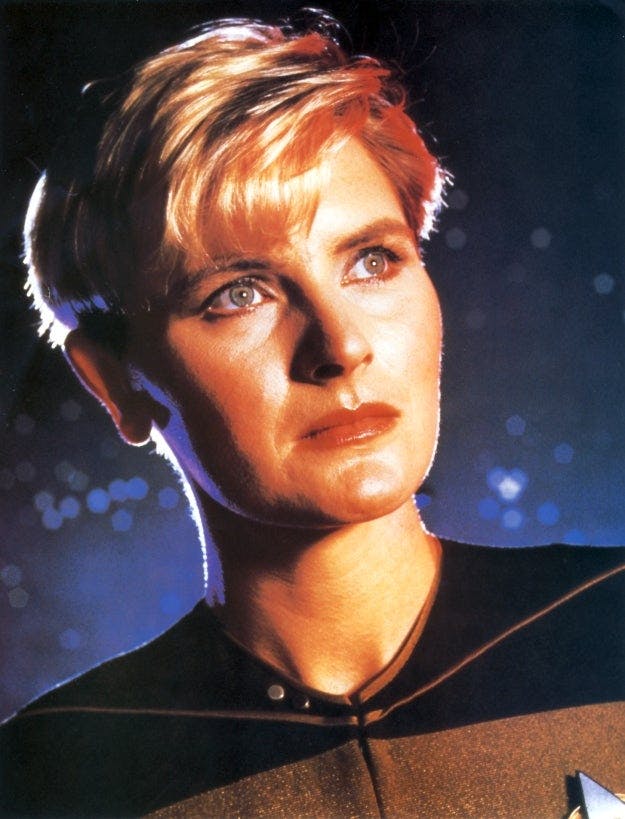
StarTrek.com
“Behave yourselves, gentlemen.” --TNG, "Symbiosis," Season 1, Episode 21
She was only aboard the Enterprise for one season, but seeing Lieutenant Tasha Yar as the strong and capable security chief made an impact. While Dr. Crusher and Counselor Troi were cast in nurturing roles, Lieutenant Yar was not. She occupied a space often thought of as masculine, and did so with authority.
Kira Nerys
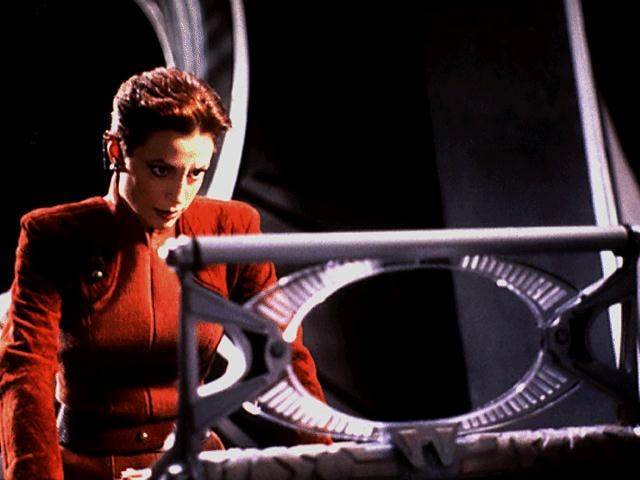
StarTrek.com
"If you don't take that hand off my hip, you'll never be able to raise a glass with it again." --DS9, "Emissary," Season 1, Episode 1
When Nana Visitor first looked at the script for Major Kira Nerys, she knew this was a character for her because she couldn’t tell just by reading if the character was male or female. Gender didn’t matter. Kira is passionate about her goals and ideology and isn’t afraid to butt heads with Captain Sisko or anyone else. She also develops a deep and delightful friendship with Dax. While Counselor Troi may have been my feminist childhood icon, Kira was my feminist teen icon.
Jadzia and Ezri Dax
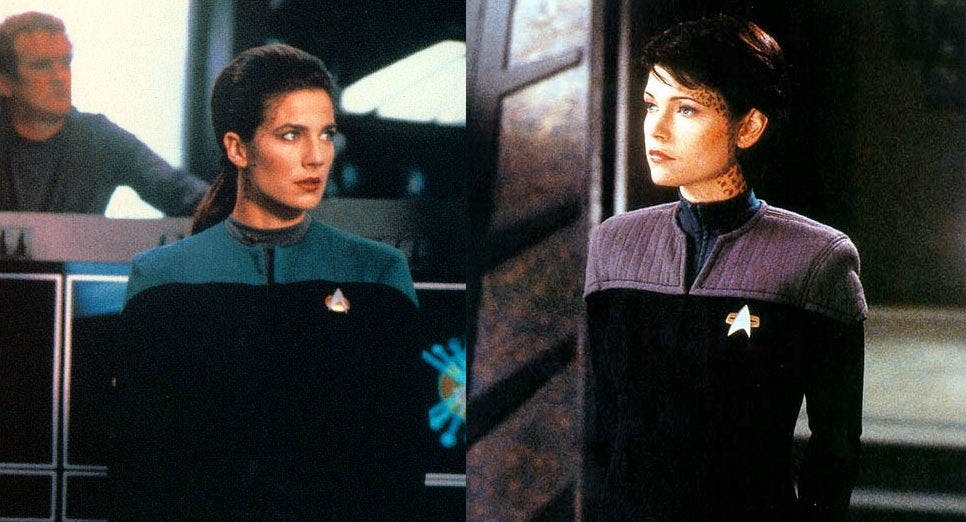
StarTrek.com
“I hope you’re not holding back because I’m a woman. If it makes things any easier, think of me as a man. I’ve been one several times.” --Jadzia, DS9, "The Way of the Warrior," Season 4, Episode 1
“I’m still sorting out my pronouns.” --Ezri, DS9, "Prodigal Daughter", Season 7, Episode 11
Lieutenant Commander Jadzia Dax is a character that has always explored gender and sexuality in a fascinating way, with many fans reading her as trans or nonbinary. In my favorite episode featuring her, “Blood Oath,” she reunites with three Klingon warriors she knew when she was Curzon Dax. Her Klingon friends treat her the same as they did when she was Curzon, rather than changing their perspective of her now that the Dax symbiont was in a female host. In “Rejoined,” she became the first female character to kiss another woman on screen in the Star Trek universe, and it’s one of the first televised lesbian kisses ever. Some networks refused to air that episode. While co-director and executive producer Ira Steven Behr argues he didn’t do enough with queer, trans, or nonbinary roles in DS9’s documentary, Jadzia’s inclusion was a start.
In some ways, Lieutenant Ezri Dax embraces a queer role much more effectively than Jadzia could. In the mirror universe Ezri was a lesbian, as seen in "The Emperor's New Cloak,” and the episode did not receive nearly the same level of criticism as “Rejoined.” She continued Dax’s revolutionary persona, though Star Trek didn’t fully embrace LGBTQ+ characters until Star Trek: Discovery.
Kathryn Janeway
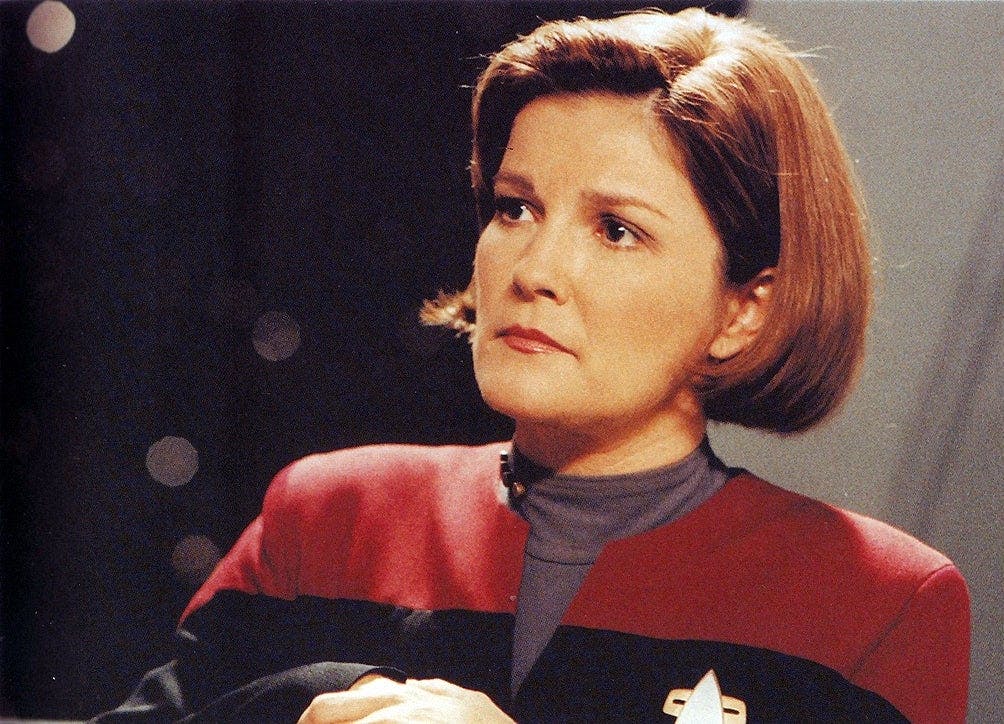
StarTrek.com
"There are three things to remember about being a starship captain. Keep your shirt tucked in, go down with the ship... and never abandon a member of your crew." --"Dark Frontier Part 2," Season 5, Episode 16
We were all waiting for a female captain, and Captain Janeway proved that women can lead both a ship and a show. Captain Janeway combined scientific curiosity with both compassion and a commanding presence. She was willing to listen and debate with all members of her crew and invited discussion and disagreement like no captain before her. Some of the most memorable scenes are her passionate discussions with the other female members of the crew - particularly Seven of Nine. Kate Mulgrew’s dynamic acting gave so much depth to Captain Janeway. The character inspires many women and girls to reach for the stars.
Michael Burnham
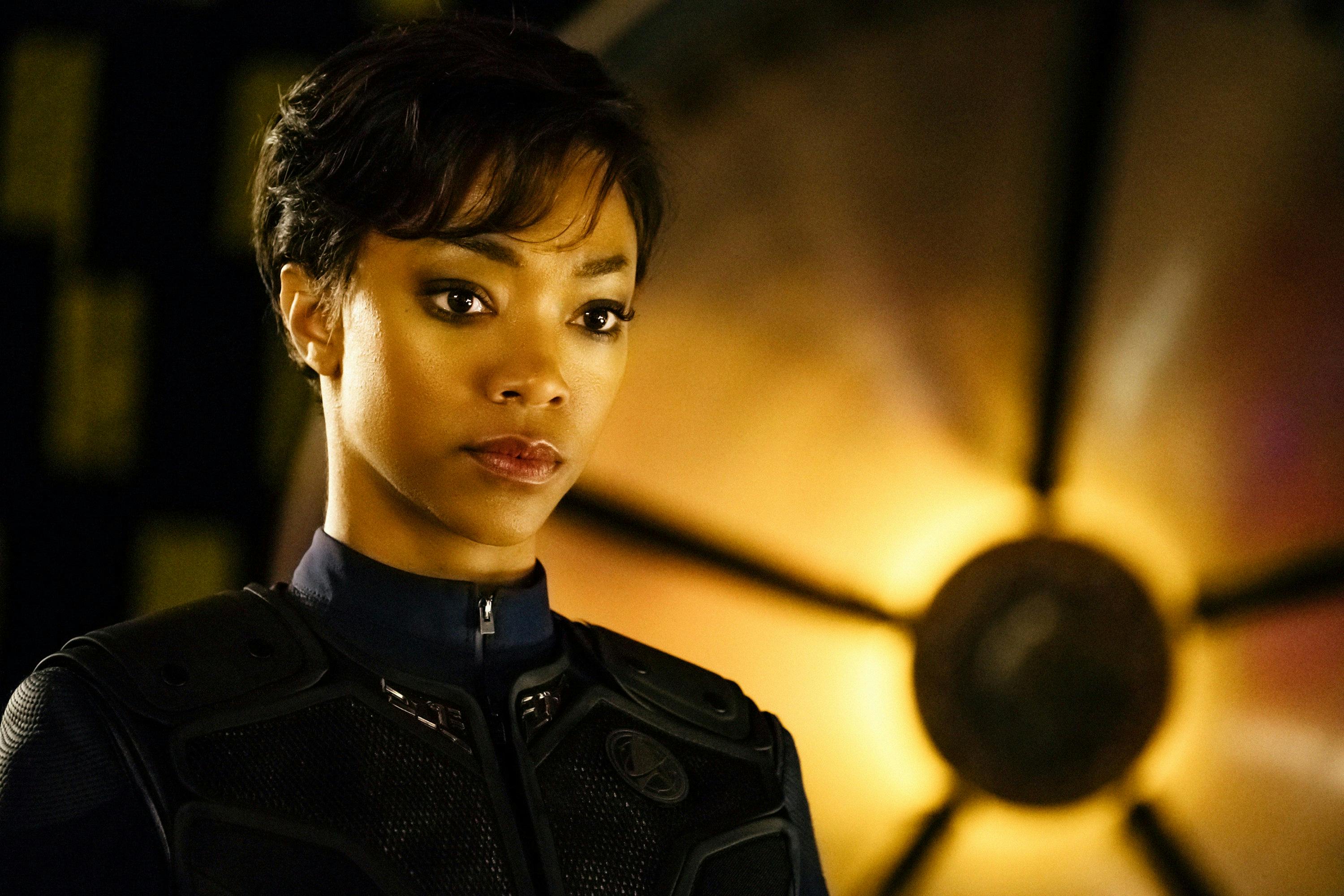
StarTrek.com
“Sometimes the only way to find out where you fit in is to step out of the routine. Because sometimes, where you really belong was waiting right around the corner all along.” -- "Magic to Make the Sanest Go Mad," Season 1, Episode 7
The most recent statistics show that 19% of women with speaking roles on television are Black, with 40% of all speaking roles overall going to women. This number has barely changed over the last seven years. The choice of having a Black actress play Star Trek’s first non-Captain lead role is significant, and Sonequa Martin-Green kills it as Michael Burnham. Burnham is driven, intelligent, and complex, and it’s a joy to watch her story unfold.
Philippa Georgiou
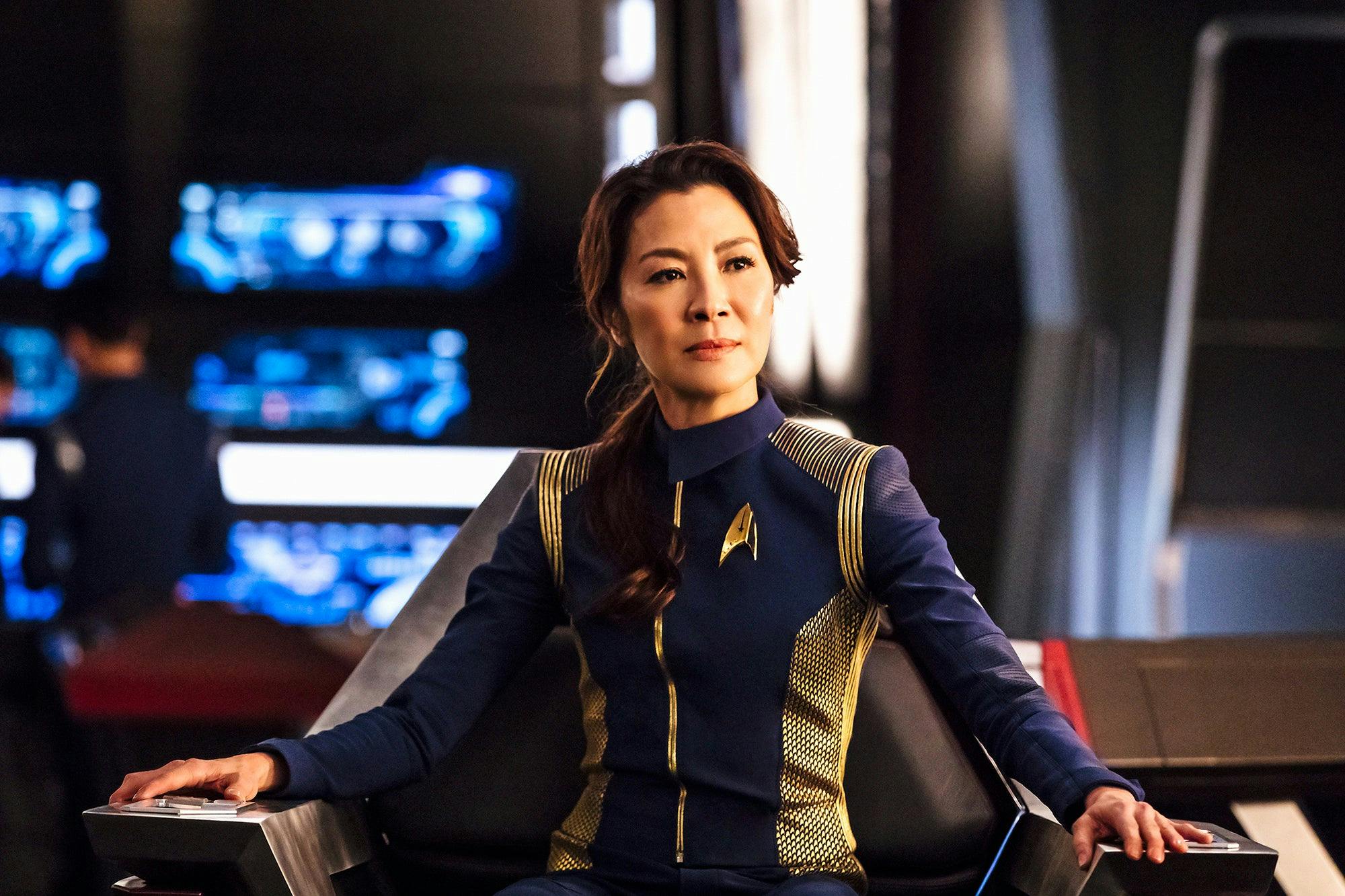
StarTrek.com
“The best way to know yourself is to know others.” --Discovery, "The Butcher's Knife Cares Not for the Lamb's Cry," Season 1, Episode 4
Captain Georgiou breaks ground for women in many areas: race, age, and by embracing her linguistic heritage. Discovery is the first show to have both of the highest commanders women of color. Asian women are also underrepresented in media, with only 6% receiving speaking roles out of the 40% of overall speaking roles for women. Michelle Yeoh also keeps her Malaysian accent, which is inspiring for many. The same study found that only 1% of women over 60 on broadcast networks receive speaking roles. While Yeoh is not quite 60, it’s still unusual to see women over 50 in such powerful roles and kicking some serious ass.
Sylvia Tilly
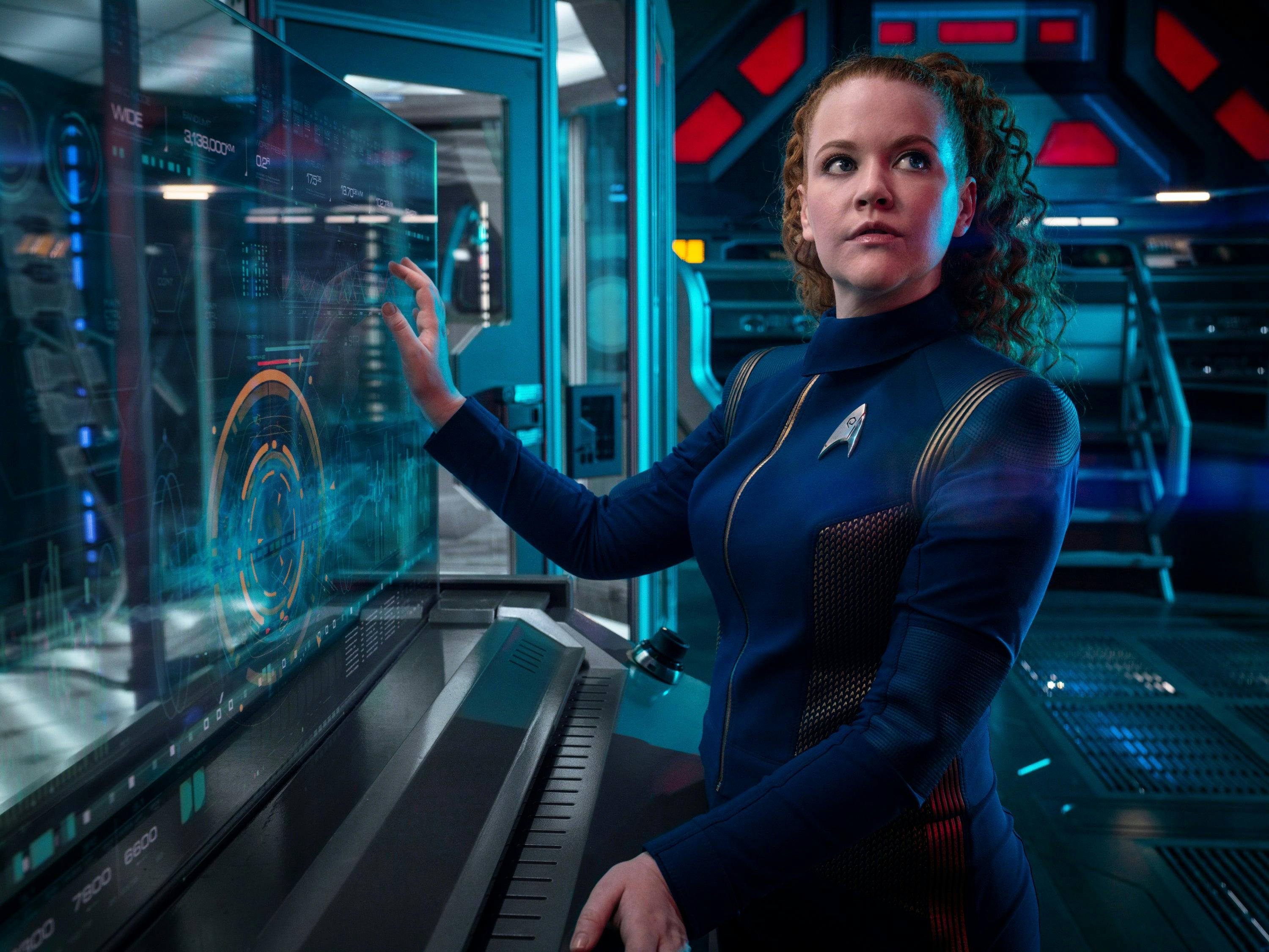
StarTrek.com
“This is the power of math, people!” --Discovery, "Brother", Season 2, Episode 1
Ensign Tilly is certainly not the first science-loving woman officer in Star Trek; however, her complete and unabashed joy for science (she drops the first F-bomb for love of science) is unique. She’s also become an iconic figure for many women who have trouble imagining themselves in the skintight Starfleet uniforms. Moreover, while Ensign Tilly was never intentionally written as on the autism spectrum, many fans on the spectrum see aspects of autism in her personality and identify with her. Tilly shows that any girl, no matter her body type or personality, can have a chance of making Starfleet.
Majel Barrett-Roddenberry
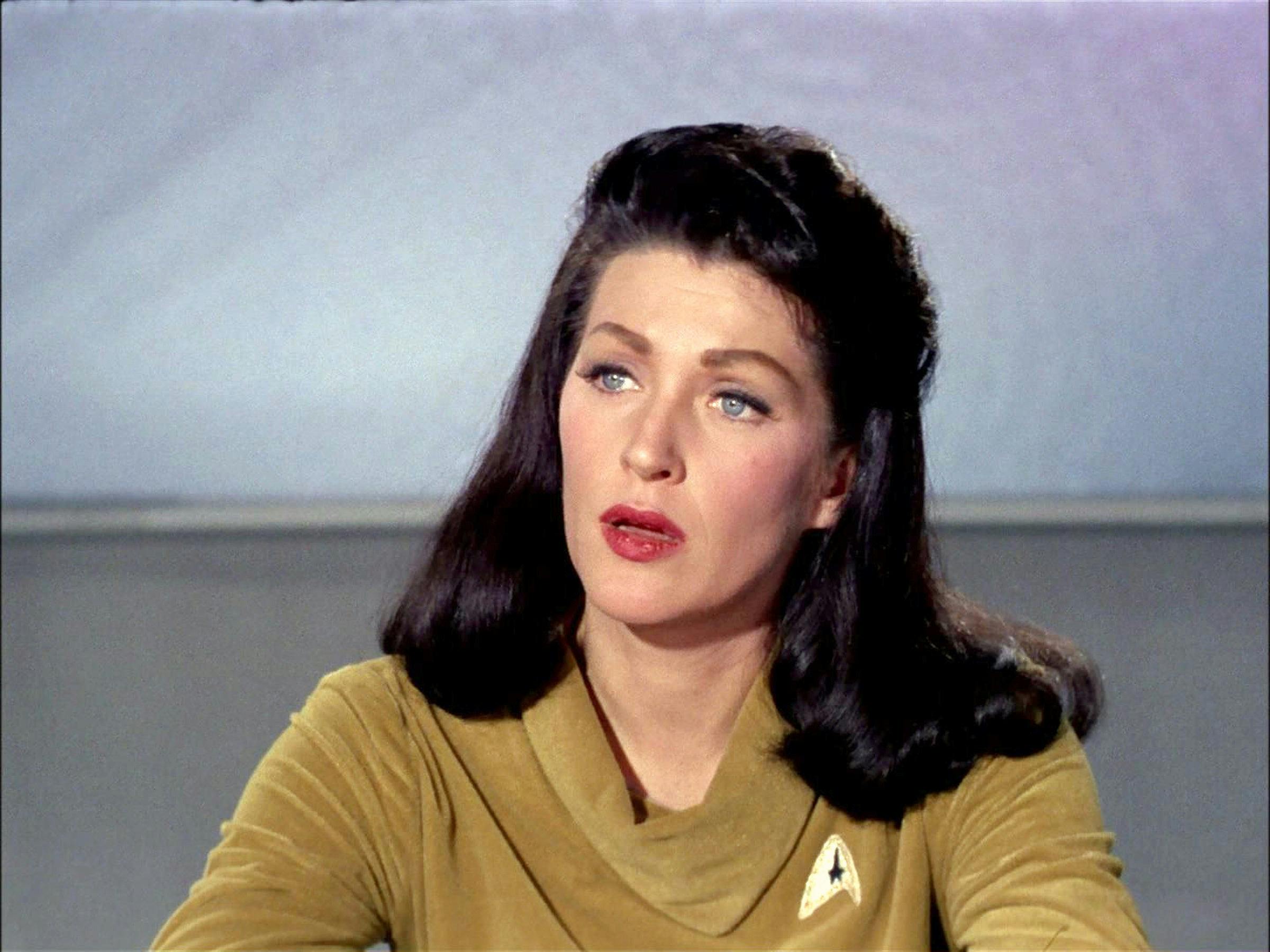
StarTrek.com
“But I'm always serious, dear boy. Only my pleasant nature makes it appear otherwise.” TNG, Lwaxana Troi in "Haven," Season 1, Episode 10
Often referred to as “The First Lady of Star Trek,” Majel Barrett-Roddenberry was originally slated to play the second-in-command in The Original Series. When NBC nixed the idea of a woman second-in-command, she was instead cast as Nurse Christine Chapel. She went on to play Lwaxana Troi, Counselor Troi’s mother, in TNG and DS9, and provided the voice of the computer in most of the series and movies until her death. Married to Gene Roddenberry, she was often behind the scenes as well.
D.C. Fontana, or Dorothy Catherine Fontana
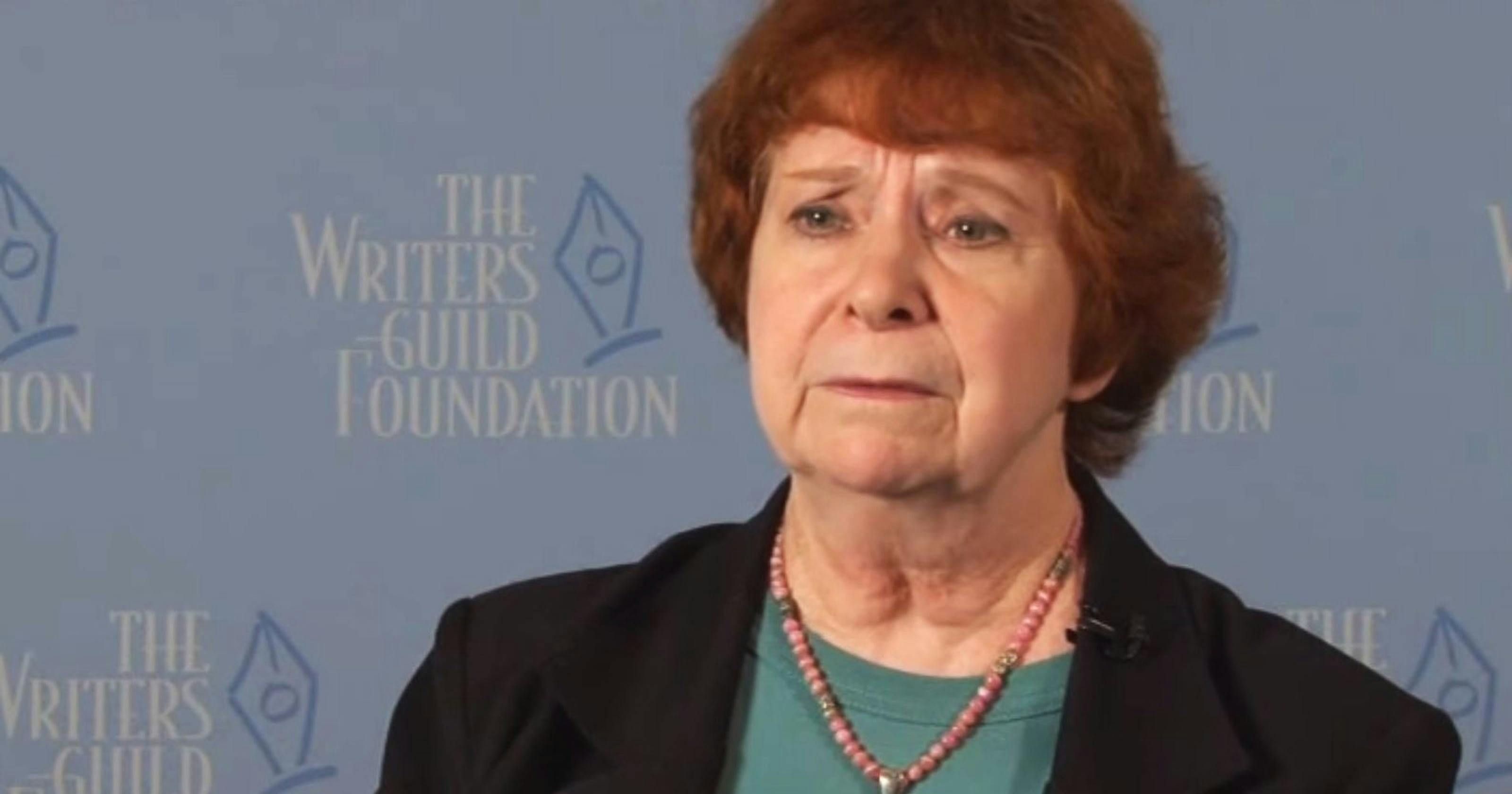
StarTrek.com
“My feeling was that not all women are mommies.” Interview for These are the Voyages, about changes made to "Friday’s Child," TOS, Season 2, Episode 11
D.C. Fontana worked behind the scenes as a writer for The Original Series and continued as a writer, script editor, and associate producer all the way through Deep Space Nine. She helped develop Spock’s character and considers it her greatest accomplishment on the show. She’s inspired other women to write for Star Trek as well.
Ultimately, all the women of Star Trek are iconic, whether they’re in front of or behind the camera. They’re all working to imagine an egalitarian and feminist future among the stars.
Margaret Kingsbury (she/her) writes about children's books at Baby Librarians, a website she co-founded, and is a contributing writer at Book Riot, where she raves about SFF books she loves. You can find her on Twitter @areaderlymom and on Instagram @babylibrarians.
Star Trek: Discovery currently streams exclusively on Paramount+ in the U.S. Internationally, the series is available on Paramount+ in Australia, Latin America and the Nordics, and on Pluto TV in Austria, France, Germany, Italy, Spain, Switzerland and the United Kingdom on the Pluto TV Sci-Fi channel. In Canada, it airs on Bell Media’s CTV Sci-Fi Channel and streams on Crave. Star Trek: Discovery is distributed by ViacomCBS Global Distribution Group.

